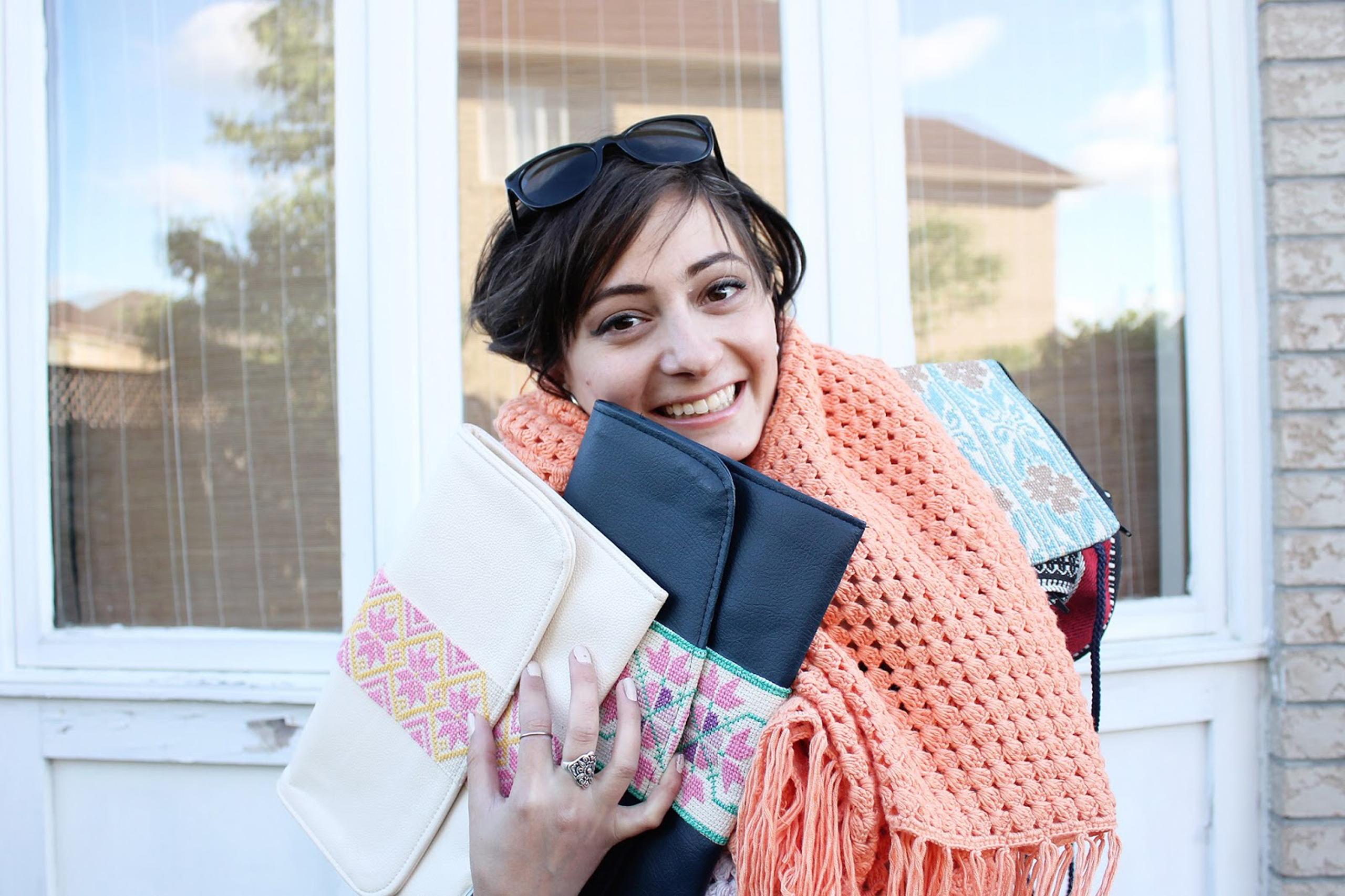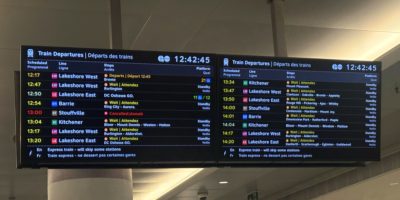By Madison Henry
When Dana Kandalaft agreed to go on a trip to Turkey, she didn’t know that visiting a refugee camp in Syria would change her life.
Like many first generation Canadians, Kandalaft, whose parents moved from Syria to Canada before she was born and did not feel particularly connected to her parent’s homeland. When she was younger, her family went on yearly trips to visit relatives in Syria, but as Kandalaft got older the trips slowed and eventually stopped altogether.
In her early 20s, Kandalaft wanted to connect with her roots, and was planning to visit Syria again. That’s when the conflict broke out. Everywhere Kandalaft looked Syria was in the news, TV stations were running endless clips of destroyed cities, fighting, and people who had been hurt by the violence. This was not the Syria that she remembered from her childhood. Her disconnect from the country only grew as it became increasingly foreign to her.
Kandalaft always wanted to help the people in the middle of the conflict but did not know what to do. She went to many fundraisers, but they did not make her feel better.
Then in 2013, Kandalaft’s cousin, who was attending school in America, asked if she wanted to go on a two-week course with her and some other students to Turkey to learn about conflict resolution in Syria. It was Kandalaft’s last semester at York University and the trip was worth three credits. Kandalaft seized the opportunity to learn more about the country that she only had good memories of, while getting credit for school.
A young girl, about 8 or 10, named Sebra came up to Dana and started yelling “Souf!” pointing at her colourful crochet purse
Kandalaft and her cousin went on the trip, and after everyone had gone home they decided to stay for another day and cross over into Syria. While there, they visited an internally displaced persons (IDP) camp. Kandalaft was afraid that the people there would not be welcoming to this stranger coming to visit their camp. She thought that they would think of her as a spoiled, privileged Canadian who only wanted to see their struggles and not help them.
She was wrong. When she got to the camp, everyone was excited to see a new fresh face and they were all very welcoming towards her.
A young girl, about eight or 10, named Sebra came up to Kandalaft and started yelling “Souf!” pointing at her colourful crochet purse. Kandalaft spoke little Arabic and did not know what “souf’ meant, so she asked Sebra to show her. Sebra went to her tent and came back with a beautiful knit purple dress. “Souf” meant yarn. An anonymous donor had donated yarn to the camp and the little girls had taken it and had each created something. Seeing this interaction between Kandalaft and Sebra, other girls in the camp showed Kandalaft what they had made with the yarn. Kandalaft then knew what she could do to help these people and to connect with her roots.
Women are often not able to find jobs in Lebanon, so giving these women a way to make money to help them pay for rent and support their families not only helps them but it also helps their husbands stay out of harm’s way, and helps their children stay in school.
That night, Kandalaft wrote a business plan for Tight-Knit Syria. A non-profit that would give the women in these camps yarn to make items that could be sold to people all over the world. She realized that by providing these women and children with the yarn and knitting needles, that she could empower these women economically, while fuelling their creativity and giving them a social activity. Many of the women say that knitting also helps to relax them and helps them endure the trauma that they have been through.
In the refugee camp in Lebanon, residents have to pay $200 in rent, which is a problem because refugees are not legally allowed to work in Lebanon. The country has been overwhelmed with the surge of refugees that have fled from war-torn Syria. Lebanon is a small country with a population of about 4.2 million Lebanese people, and 2 million Syrians have come across the border to their refugee camps. The country has been overwhelmed by the number of refugees and does not have enough aid to help them. To pay rent, the men have to work “sketchy construction jobs” as Kandalaft puts it and leaves the children to “sell flowers or shine shoes” instead of being in school. Women are often not able to find jobs in Lebanon, so giving these women a way to make money to help them pay for rent and support their families, not only helps them but it also helps their husbands stay out of harm’s way, and helps their children stay in school.
In 2015, Kandalaft moved to Lebanon for 6 months, quitting her job, in order to learn the language better and to connect with the people more. She set up the Lebanon cohort of 15 women while she was there.
She was able to see the real change that she was bringing to these women. In one instance, a woman was able to buy an oxygen mask for her son who had respiratory problems. The boy was able to go to school more and visit the doctor less often.
We believe the sacrifices made for a better future in Syria is setting fertile ground for a great shift in our world pic.twitter.com/TEh1Xz9KjD
— Tight-Knit Syria (@TightKnitSyria) November 4, 2013
Kandalaft has not been able to go back to visit the women in Syria because of the security measures that have been put up, but she frequently contacts them through apps such as WhatsApp. Kandalaft says that the women are always willing to get more work and that they can see the changes that Tight-Knit Syria has made in their lives.
Teaming up with the Ryerson Social Ventures Zone, Kandalaft works with 30 women in northern Syria and 15 in Lebanon. Tight-Knit Syria supplies them with yarn and knitting needles to make their products. Tight-Knit Syria compensates the women for their work right away, and then posts the outfits online and sells them through their website or through retailers such as Artisan and Fox, which is coming soon.
As Kandalaft puts it, “You don’t have to do something huge, or super technical to make a difference. You can find the answer by looking at your everyday life.”












Karen Krauklis
Hello Dana,
Your story is a beautiful one!
I had already known how smart, kind and wonderful you are since I had worked with you for a short period of time some years back.